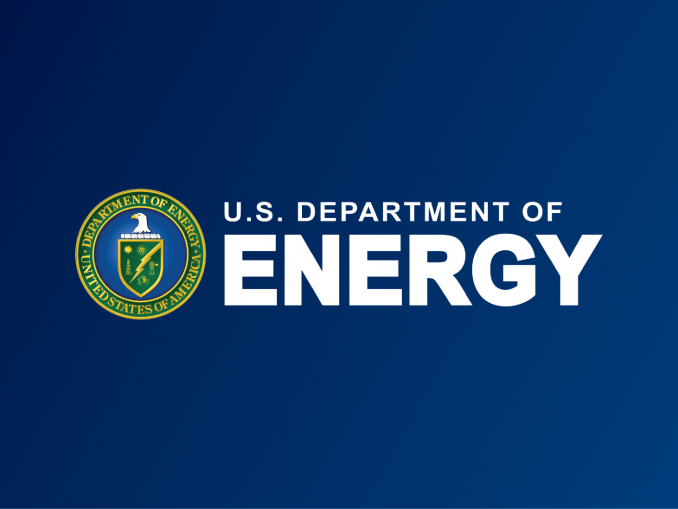

WASHINGTON, D.C.– As part of the Biden-Harris Administration’s Investing in America agenda, the U.S. Department of Energy (DOE) today announced nineteen State and local governments will receive over $240 million to adopt and implement the latest energy efficient or innovative building codes. These improvements will help save residents and commercial building operators money on their utility bills. Analysis from a National Lab shows that building energy codes make the electric grid more resilient and help save lives in climate-fueled extreme heat and cold and during extended power outages. Funded by the Inflation Reduction Act (IRA) and administered through DOE’s Office of State and Community Energy Programs, these grants are part of a suite of support, including formula funding to States and territories from the IRA and additional grants from the President’s Bipartisan Infrastructure Law, that DOE is providing to States, localities, territories, Tribes, and their partners to advance both traditional and innovative building energy codes resulting in more resilient, more-efficient, and better buildings across the country.
“State and local governments are taking on advanced, proven solutions that will help save energy bills while making their communities more resilient in the face of climate change – and the Biden-Harris Administration is helping them achieve these goals,” said U.S. Secretary of Energy Jennifer Granholm. “DOE is helping jurisdictions move further and faster in implementing stronger codes that will provide Americans safer, healthier, and more comfortable places to live, work, and play.
Existing commercial and multi-family buildings, under the umbrella of an innovative code like a building performance standard, can cut energy costs and greenhouses gas emissions. The National Building Performance Standard Coalition estimates that approximately 25% of commercial buildings fall under a building performance standard, which will improve buildings for almost 74 million people. In addition, homes built to the latest building energy codes (the model energy codes published by the International Code Council or American Society of Heating, Refrigerating and Air-Conditioning Engineers Standard 90.1) are nearly 40% more efficient than homes built 15 years ago.
Building upon the groundwork laid by the initial set of selections from DOE’s implementation of the President’s Bipartisan Infrastructure Law with respect to building energy codes, the 19 selectees funded by the IRA announced today will receive direct technical assistance to support the adoption and implementation of traditional energy codes, zero energy codes, and building performance standards. These grants advance the Biden-Harris Administration’s Justice40 Initiative, which sets the goal that 40 percent of the overall benefits of certain federal investments in climate, clean energy, and other areas flow to disadvantaged communities that are marginalized by underinvestment and overburdened by pollution.
The selected projects include:
- Cincinnati, Ohio will lead a team that incudes Cleveland, Columbus, and Dayton in receiving $10M to develop and adopt a building performance standard and create the Ohio High Performance Buildings Hub – a “one stop shop” connecting building owners to financing solutions and incentives along with the support, education, and training needed to comply with BPS targets.
- Kansas City, Missouri will receive $9M to develop and adopt a building performance standard that builds on a long-standing data-driven building analysis program and will include a comprehensive public and stakeholder outreach and engagement plan, along with accompanying training, technical assistance, and implementation resources.
- Philadelphia, Pennsylvania will receive $19.8M to design, develop, adopt, implement, and enforce a building performance standard to maximize emissions reductions from large buildings, while providing robust support programs that will ensure equitable outcomes with high compliance rates.
- Milwaukee, Wisconsin will receive $9M to develop, adopt, and implement a building performance standard informed by an existing data-driven buildings analysis program and engagement with local community stakeholders.
- Colorado will receive $20M to create a statewide program that will provide technical assistance and resources to directly respond to the needs identified by disadvantaged communities when complying with Colorado’s building performance standard.
- Hawaii will receive $18.1M to develop and adopt a building performance standard with an objective of simultaneously reducing costs and making resources, jobs, and training available in disadvantaged communities over the course of its implementation.
- Massachusetts, in collaboration with the cities of Boston and Cambridge, will receive $19.9M to support implementation of their respective building performance standards through direct technical support and capacity building among existing building trades programs in Justice40 communities and the creation of a Building Performance Exchange hub.
- New York City, New York will receive $19.9M to support the successful implementation of the City’s building performance standard by increasing compliance support for multifamily buildings across the City, particularly those in disadvantaged communities, and by increasing in-house capacity to monitor, support, and enforce requirements.
For a full list of projects, please click here. Selection for award negotiations is not a commitment by DOE to issue an award or provide funding. Before funding is issued, DOE and the applicants will undergo a negotiation process, and DOE may cancel negotiations and rescind the selection for any reason during that time.
Applications for the second round of competitive funding under the IRA will close on September 13, 2024, and DOE encourages all States and localities with the authority to adopt codes to consider applying. Additional information is available on Infrastructure Exchange under the Record Number DE-RD2-0003056.
This Latest and Zero Building Energy Codes opportunity is a rolling FOA open to states, territories and units of local government that have the authority to adopt building codes. The competitive program is available alongside a Formula Funding opportunity for states and territories to adopt, implement, and enforce the latest and zero building energy codes. This IRA funding opportunity is part of a suite of support, including grants from the President’s Bipartisan Infrastructure Law that DOE is providing to jurisdictions and their partners to advance building energy codes.
Originally published at https://www.energy.gov/articles/biden-harris-administration-announces-over-240-million-new-and-innovative-building-codes
The post Biden-Harris Administration Announces Over $240 Million for New and Innovative Building Codes to Save Consumers Money, Reduce Impacts of Climate Change first appeared on Social Gov.
